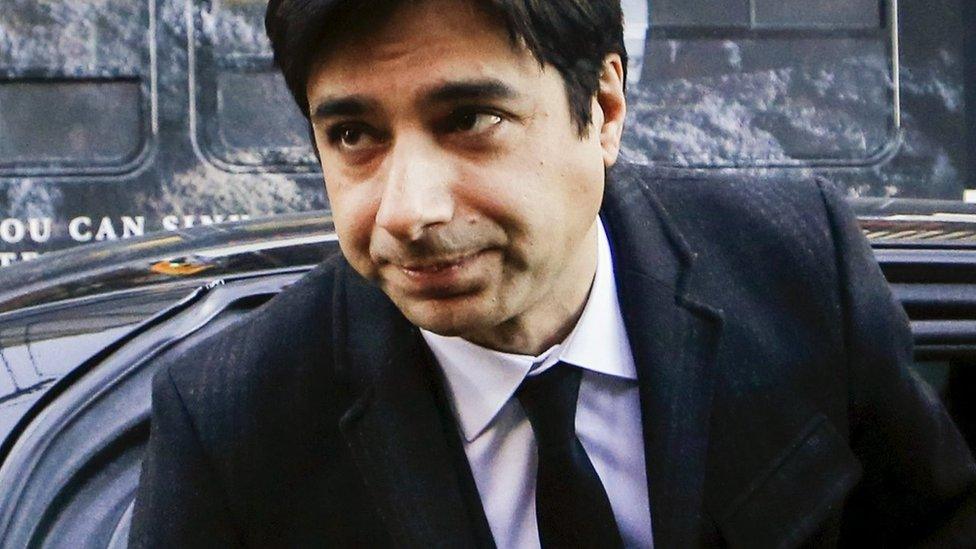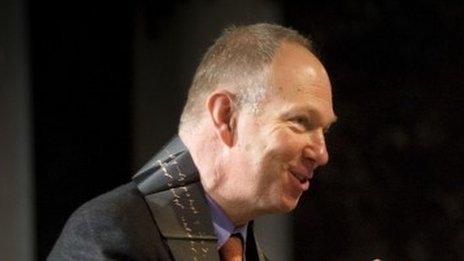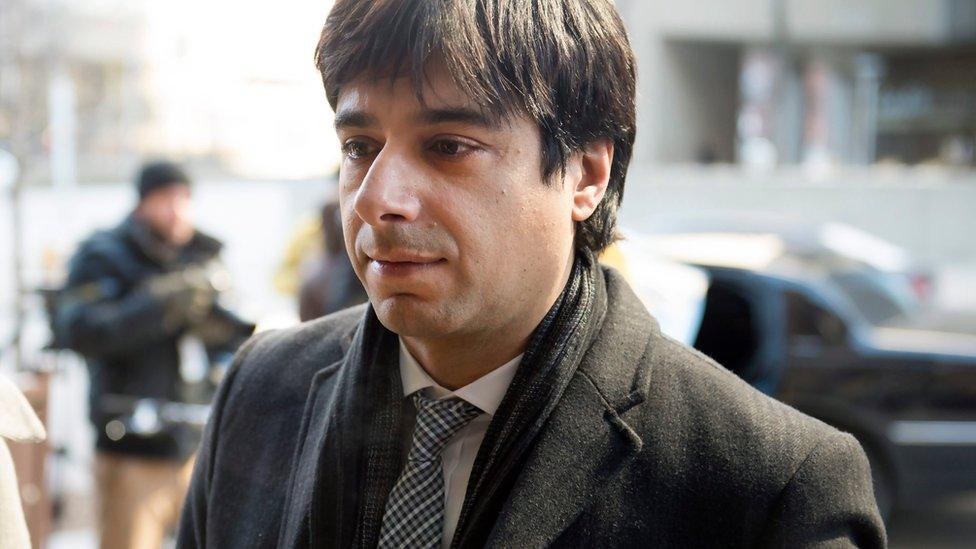New York Review of Books editor leaves over Jian Ghomeshi article
- Published

The Jian Ghomeshi article covers the fallout of his sexual assault trial and acquittal
The editor of the prestigious New York Review of Books has left the post after publishing an essay by a Canadian ex-radio host who had been charged and later acquitted of sexual assault.
Ian Buruma said he felt "forced to resign" due to outside pressures.
In the October edition article, Jian Ghomeshi talks of "mass shaming" after his trial in 2016.
Mr Buruma defended publication, part of a "Fall of Men" series, but faced strong criticism on social media.
A spokesman for the New York Review of Books (NYRB) confirmed Mr Buruma was no longer the editor.
What was the Ghomeshi article about?
The piece, called Reflections from a Hashtag, appeared last week.
In it Mr Ghomeshi says he wants to "add nuance" to the allegations that had been made against him.
He also said he had faced "enough humiliation for a lifetime". He rejects most of the accusations although accepts he has learned lessons.
He calls himself an "erstwhile celebrity who is now an outcast".
In a follow up statement posted online, the magazine added more details of the accusations against Mr Ghomeshi and pledged to allow "substantial space" for letters responding to this article in the next issue.
What was he accused of?
In 2014, allegations began to surface against Mr Ghomeshi and he was fired by CBC.
More than 20 women and one man came forward with stories, telling various media outlets of being allegedly punched, slapped and choked by Mr Ghomeshi without warning or consent, and prompting police to launch an investigation.
Mr Ghomeshi was tried and acquitted in Toronto in 2016 of four counts of sexual assault and one count of overcoming resistance by choking.
Three women had accused Mr Ghomeshi of attacking and sexually assaulting them between 2002 and 2003. He denied the charges, describing the encounters as consensual "rough sex".
The judge said the complainants' stories had been inconsistent and said reasonable doubt existed.
The ruling sparked protests and criticism from survivors of sexual assault.
Mr Ghomeshi prevented another trial by signing a "peace bond" and apologising to the woman involved.
Why did Buruma publish the article?
Ian Buruma, 66, had been editor of the New York Review of Books for 16 months.

It is unclear whether Ian Buruma resigned or was sacked
His interview with Slate magazine defending the publication, external, drew outraged on social media.
He told the publication: "In a court of law he was acquitted, and there is no proof he committed a crime."
He continues: "The exact nature of his behaviour - how much consent was involved - I have no idea, nor is it really my concern."
Mr Buruma says the point of the article is to discuss the fallout and "social opprobrium" that follows such a case.
He says: "My interest in running this piece is the point of view of somebody who has been pilloried in public opinion and what somebody like that feels about it. It was not run as a piece to exonerate him."
In a later interview with Dutch magazine Vrij Nederland, external, he continued to defend the publication, and said he felt "forced to resign".
He said his staff and editor agreed with the decision to publish, and called his departure "a capitulation to social media and university presses".
"I have now myself been convicted on Twitter, without any due process."
In the Slate piece, Mr Buruma characterises the #MeToo movement "an entirely good thing" which can have "undesirable consequences".
What was the response to the article?
Much of the comment criticised the tone of the Ghomeshi article itself.
One tweet, from Jesse Brown, said it was "riddled with factual inaccuracies, obfuscations and manipulations".
Others took aim at Mr Buruma for publishing the piece...
Allow X content?
This article contains content provided by X. We ask for your permission before anything is loaded, as they may be using cookies and other technologies. You may want to read X’s cookie policy, external and privacy policy, external before accepting. To view this content choose ‘accept and continue’.

Allow X content?
This article contains content provided by X. We ask for your permission before anything is loaded, as they may be using cookies and other technologies. You may want to read X’s cookie policy, external and privacy policy, external before accepting. To view this content choose ‘accept and continue’.

But there was also some support for his line that Mr Ghomeshi had been cleared in court, with one tweet saying "dial back the pandemonium".

You might also be interested in:

- Published24 March 2016

- Published25 March 2016
